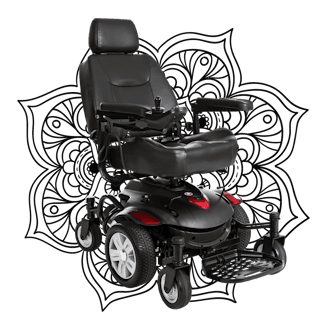CPAP Machines
CPAP & BiPAP
Medicare typically pays 80 percent of approved costs for CPAP machines and BiPAP machines. Certain supplies, such as tubing and masks, are also partially covered. You may need to undergo a doctor-supervised sleep study to qualify for a CPAP machine covered by Medicare.
How Much Does a CPAP Machine Cost with Medicare?
Generally, Medicare covers 80 percent of costs related to sleep apnea machines. The Part B deductible applies.
You may pay less or owe nothing if you have Medicaid as your secondary payer.
Medicare Advantage plans also generally cover CPAP machines and therapy because these plans must offer at least the same coverage as Original Medicare.
Many Medicare Advantage plans require doctors to submit a prior authorization request before the insurer will pay for a sleep study or CPAP machine.
Because CPAP treatment doesn’t work for everyone, Medicare initially covers the machine for a three-month trial period after you are diagnosed with sleep apnea.
Medicare may extend coverage if your doctor determines that the therapy is helping your condition.
After this three-month trial, you will owe 20 percent of the Medicare-approved cost to rent the machine as durable medical equipment.
The equipment supplier will provide you with instructions on how to use the CPAP machine.
Medicare pays its share to the supplier to rent the machine for 13 months. After that, you own the machine outright.
You must rent your device from a supplier enrolled in Medicare, and the doctor who orders your sleep apnea machine must also accept Medicare.
Medicare will usually cover the cost of a new CPAP machine every five years.
If you had a machine before enrolling in Medicare, Medicare may cover some of the costs for a replacement CPAP machine rental and accessories if you meet certain requirements.
What Is Sleep Apnea and How Is It Treated?
Sleep apnea is a potentially serious disorder in which your breathing repeatedly stops and starts during sleep. Apnea occurs when your airflow stops for at least 10 seconds.
According to the Mayo Clinic, if you snore loudly and feel tired the next day even after a full night’s sleep, you may have sleep apnea.
Most Common Types of Sleep Apnea
Obstructive Sleep Apnea (OSA)
Central Sleep Apnea (CSA)
*Research has found OSA to be much more common than CSA. When people use the generic term “sleep apnea,” they’re usually referring to OSA.
Common Signs and Symptoms of Sleep Apnea
- Loud snoring
- Gasping for air during sleep
- Waking up with a dry mouth
- Headaches in the morning
- Insomnia
- Excessive daytime sleepiness
Sleep apnea is most common in people who are overweight, use alcohol or sedatives, smoke or suffer from certain medical conditions such as congestive heart failure.
The condition is also more common in men than women.
The most common treatment for moderate to severe sleep apnea is a breathing device, such as a Continuous Positive Airway Pressure, or CPAP, machine.
CPAP therapy delivers a flow of pressurized air from a machine through a mask that fits over your mouth or nose. This helps keep your airway open and breathe more easily while you sleep.
CPAP machines also include tubing that connects the machine to the face mask. It may also have a humidifier attachment.
A bilevel positive airway pressure, or BiPAP, machine is another device used to treat sleep apnea. It’s like a CPAP machine but provides more air pressure when you inhale and less pressure when you exhale.
Medicare Coverage of CPAP Supplies and Sleep Studies
In addition to CPAP machines, Medicare Part B covers other treatments and supplies related to sleep apnea.
Medicare may also cover:
- Certain sleep studies
- Other sleep apnea machines, such as a BPAP machine
- Oral appliance therapy with sleep apnea devices
- Supplies, such as tubing, masks and filters
Your doctor will need to run tests and order a sleep study to formally diagnose you with sleep apnea.
Your doctor may either order an at-home sleep apnea test or require you to undergo a formal lab sleep study at an overnight clinic.
Medicare generally pays 80 percent of the approved cost for sleep studies, and the Part B deductible applies.
Medicare will also cover 80 percent of the cost for replacement CPAP supplies on a regular schedule.
That’s because CPAP supplies can get dirty or worn out over time. For example, the face mask material tends to absorb oil from your skin and may become stiff.
Medicare CPAP Machine Supply Replacement Schedule
- Full Face Mask: One every three months
- Full Face Cushion: One per month
- Nasal Cushions: Two per month
- Headgear: One every six months
- Chinstrap: One every six months
- Tubing: One every three months
- Disposable Filters: Two per month
- Non-Disposable Filters: One every six months
- Heated Humidifier: One every five years
Original Medicare typically doesn’t pay for items or services that exceed this replacement schedule.
If you have a Medicare Advantage plan, check with your insurance company to see how often they will pay for replacement supplies.

Manufacturers, suppliers, and sleep physicians all recommend that patients regularly clean their CPAP machines and supplies.
However, there are certain CPAP supplies Medicare won’t cover.
Medicare typically doesn’t pay for cleaning supplies, power solutions, or certain comfort accessories.
-
Mask wipes
- Mask liners
- Headgear comfort pads
- Tube covers and wraps
- Hose holders
These items may be expensive without insurance. The SoClean device, for example, can average around $400.
Medicare Resupply Guide
Need Supplies?, Have a Prescription?
Contact Us
Call US
919-522-5221Call Us
919-522-5221
Fax
919-874-5123Fax
919-874-5123
CREDIT: Christian, Rachel. “Does Medicare Cover CPAP Machines?” RetireGuide.com, 19 May 2022, https://www.retireguide.com/medicare/services/durable-medical-equipment/cpap-machines/.


